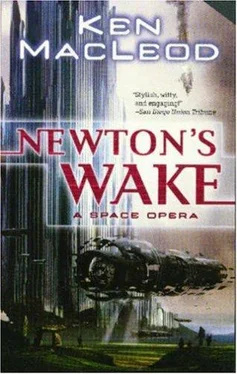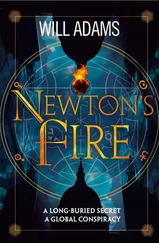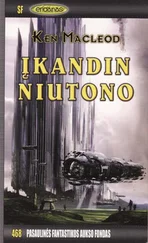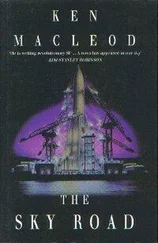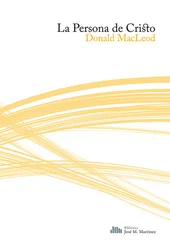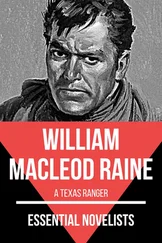‘Pull back the troops and nuke the relic,’ said Armand.
Carlyle almost jumped out of her seat, but said nothing. A tactical nuke would keep the gate closed even longer, which might be no bad thing, even if it did waste the posthuman artifact.
‘Nuclear groundburst in atmosphere?’ said Airborne, looking up from something invisible above her pad. ‘This had better be for a good reason.’
‘You’ll have seen the recordings,’ said Armand, in a level tone.
Airborne pursed her lips. ‘Precipitate,’ she said. ‘Wouldn’t you say?’
‘No,’ said Armand. ‘I would say dilatory.’
Some of the fine lips smiled at that.
‘Nevertheless,’ said Space. ‘Now that the transmission has taken place, observation and isolation would be more appropriate. Horse, stable door, et cetera. You do realise that following up the signal, if such it was, with the unmistakeable signature of an EMP could only make matters worse?’
Armand shrugged. ‘Assuming that signalling is the only function of the machinery. I beg leave to doubt that.’
‘You doubt our capacity for containment?’ asked Surface.
‘With respect, sir, I do. My views are—’
‘A matter of tedious public record,’ said State, with a wave of her hand. She blinked rapidly, accessing some new menu. ‘However, as my colleague at Space suggests, we have to deal with the situation with which we are presented. So we maintain containment around the relic, and of course the gate. Full alert of space defences, civilian vigilance upgraded to orange, all defence companies on public contract, and reserve mobilization funds released. That includes yours, Mr Armand.’
‘Thank you,’ said Armand. He leaned forward slightly. ‘Does that include resurrections?’
‘Over my dead body,’ said Chair.
‘Selective, of course,’ Armand hastened to add, ‘and subject to individual security approval—’
Chair looked at Armand as though mildly surprised to find him still there. He flipped his fingers: ‘Dismissed.’ He frowned, glanced across at Carlyle, then back to Armand. ‘Take care of this woman.’
Crossing the carpet prairie again Carlyle muttered, ‘Now what did he mean by that?’
Armand waited until they were out of the door before replying. ‘He didn’t mean dispose of you.’
The elevator sucked them to street-level, the lobby sighed them out, the doors of the Government building thudded shut behind them. After the air-conditioning of the interior the hot air struck her again, not humid exactly but sweaty and jungly. Carlyle teetered on the edge of a flight of a dozen wide marble steps balustraded with cosmonaut caryatids and banistered with a marble sweep of stylised contrail ending in the upward swoops of chrome-plated rockets each at least two metres long and shaped like V2s. A backward glance showed her a marble cliff-face of likewise daunting civic pomp. Turning hastily forward again she looked out over a plaza surrounded by smaller but still grand buildings, over the roofs of which taller and more technologically advanced towers and spires loomed like trees. The plaza, a hundred metres across, was filled with a crowd of ever-increasing density whose forward ranks surged back and forth at the foot of the steps like lapping waves. The clothes of the people were light and loose, varied in colour and texture but with an underlying uniformity in that very emphasis.
‘On the street you’re world famous,’ said Armand.
Cameras swarmed in the air around their heads, a hundred reporters stretched forward. Every one of them looked appallingly beautiful and frightfully interested. Carlyle climbed back a couple of steps. Armand raised a gloved hand. The cameras took evasive action and the reporters backed off. Armand turned to Carlyle with an evil grin.
‘You first,’ he said.
We were a knuckled fist of gems
flung in the face of the night.
Benjamin Ben-Ami stared down at the lyric, disgusted with it and himself. It was one of the better ones he’d received. He moved to delete it, then saved it with the rest to the scrap file, just in case nothing better in the way of inspiration came to its author. Just in case there was some way to rescue it. No, he thought, we were not a fist of gems flung in the face of the night. We were stored information in crystalline optical computers, and we were not a flung fist but a fleeing scut. And, while he was about it, we weren’t ‘we’; the stored minds in the ship hadn’t been conscious, and most of the people in the city, including himself and the writer, had been born since.
He sighed and stuffed the slate into the pocket of his robe. The Bright Contrail, the little pavement cafe in which he’d sat for the past few hours, was full of people watching television on public screens or personal contacts and still discussing the news that had electrified the city and inspired the vision with which he was struggling. He could stare at his empty cup, then lift his gaze to the needle-ball pines of the Jardin des Étoiles across the busy thoroughfare and imagine the show: a vast patriotic son et lumière , the sound loud, the lights bright, the dancers and actors amplified by holograms into giants at will, celebrating the city, the colony, its strange deep past of ancient wars and its will to fight the new menace, and in so doing, shape and in part create that will. A contradiction twisted at the heart of the project: the whole history of which the colony was, in a curious way, proud, was one of running away, of sauve qui peut . Somehow he had to turn that, symbolically, into fuit en avant : the flight to the front.
Because that was what the colony’s epic journey had turned out to be, if today’s news was as bad as the worst case scenarios claimed. Not only was the galaxy apparently swarming with other survivors, most of whom seemed to be complete savages, but the first thing the first savages to arrive had done was to stir up a hornet’s nest. In fleeing from humanity’s own out-of-control war machines, the colony had run slap into the domain of the war machines of the intelligent species that had inhabited Eurydice about ten million years earlier, and whose spectacular extinction—along with most of the planet’s multicellular life—had long been speculatively attributed to just such a catastrophe, without definitive evidence until now. There had been indications of nuclear war and nuclear winter, in a thin layer of anomalous isotopes smeared between strata, though even that was controversial, there being a strong school of thought attributing it to an asteroid strike. Now the evidence was in, and quite possibly, more was on its way.
‘Company?’
He looked up to see his friend Adrian Kowalsky standing with a fresh coffee in each hand. He wore a suit made of something that looked like camouflage webbing in which some visibly synthetic leaves and small animal skins had become entangled. His slim, pale face was stretched in rhetorical query.
‘Delighted,’ said Ben-Ami.
The actor put down the two cups and sat. The two men sipped in silence for a moment.
‘I understand you’re looking for players,’ said Kowalsky.
Ben-Ami laughed. ‘Thanks for keeping an eye on my lists,’ he said. ‘But first I need writers. I put out the spec as soon as I heard the news, the idea for the show just came to me, and I’ve had, you know, not a bad response. In terms of quantity, that is. Quality is something else.’
He dug out his slate and thumbed up the lyrics file. Kowalsky paged through it, with a widening smile and an occasional guffaw.
‘Instant slush,’ he said, passing the slate back. ‘But that’s just the first day. Better writers may well take longer to come up with a response.’
Читать дальше
